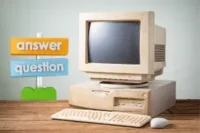How to Fix Water Damage on a Laptop – Don’t Panic, Fix It Now!
Published: 13 Mar 2025
Imagine this: You’re busy working, and suddenly, a glass of water tips over and spills all over your laptop. The screen flickers, the keyboard stops responding, and panic ensues. What should you do right now? But don’t panic, take a long breath and follow these step-by-step instructions for repairing water damage on a laptop. As soon as you take action, the higher your chances of saving it!

2. Immediate Actions to Take (First Few Seconds Matter!)
When it comes to water spills on laptops, quickness is important. The first couple of minutes are essential to reduce the damage. Here’s what you need to do:
2.1 Turn Off the Laptop Immediately
If your laptop is still powered on, turn it off as quickly as possible to avoid electrical shorts. Water conducts electricity, which can result in serious damage. Don’t press any keys or touch the touchpad, as this may cause water to penetrate the device.
Picture this: spilling coffee on your laptop—don’t delay! Immediately turning it off can help you avoid irreversible motherboard damage.
2.2 Unplug Everything
Next, unplug the charger and any external devices (such as USB drives or headphones) and, if possible, remove the battery. Disconnecting all peripherals prevents water from spreading to the parts.
Also Read This
Laptop Battery Removal Guide – Internal & External Batteries
2.3 Wipe Off Excess Water
Remove any visible liquid from the surface using a clean, dry cloth or paper towel. Avoid shaking or tilting the laptop too much, as this may allow liquid to get into deeper components of the laptop system.
3. Drying the Laptop Properly
Many people use rice or hairdryers, but these methods can cause more harm than good. Here’s the correct way to dry out a laptop:
3.1 Open and Air Out the Laptop
To help the laptop dry faster, gently open it to allow air to flow. Then, place the keyboard facing down to allow any stuck liquid to drain.
3.2 Use a Fan or Compressed Air
For removal of moisture from hard-to-reach areas, place the laptop close to a fan. You can also use compressed air to remove water from the keyboard, vents, and screen.
3.3 Leave It to Dry for 24-48 Hours
Patience is crucial. Don’t hurry to turn on your laptop. Let it dry completely in a dry place for 24 to 48 hours before you try to turn it on.
4. Checking for Damage & Turning It On
After ensuring your laptop is completely dry, it’s time to test it out. Here’s how:
4.1 Reconnect the Battery and Power On
Once your laptop has dried for 1-2 days, try turning it back on. If it doesn’t power up, the issue may be more severe than expected.
4.2 Test the Keyboard and Touchpad
Sometimes, water affects the keyboard or touchpad first. If either of these isn’t responding, test using an external keyboard or mouse to see if the laptop itself is functioning.
Test Tool Online
After drying your laptop, use our free online test tool to check which keyboard keys, touchpad buttons, and other components are not working properly.
5. What to Do If Your Laptop Won’t Turn On
In situations of serious damage, your laptop might not restart. Here’s what you should look for:
5.1 Signs of Serious Water Damage
Look for symptoms such as a burning smell, odd noises, or screen flickering. If any of these conditions happen, the motherboard may be damaged.
5.2 When to Take It to a Repair Shop
If your laptop fails to power on or you see permanent damage (such as no response from the screen or keyboard), you need to take it to a repair shop. It’s necessary to understand that fixes, like replacing a water-damaged LCD panel, might be expensive.
6. Preventing Water Damage in the Future
It’s always better to prevent than to treat. Here’s how to keep your laptop safe against possible spills:
6.1 Use a Waterproof Laptop Cover
Purchase a protective case or waterproof cover for your laptop. It provides protection against accidental spills and liquid exposure.
6.2 Keep Drinks Away from Your Laptop
Simple yet effective—keep liquids away from your laptop to avoid possible dangers.
6.3 Store Your Laptop in a Dry Place
Don’t use your laptop near water sources such as pools, bathrooms, or outside in rainy conditions.
No, rice does not work to remove moisture from the internal components. The best approach is to use airflow and proper drying methods.
Let your laptop dry for at least 24-48 hours before attempting to power it up to ensure all moisture has evaporated.
If your keyboard stops working but the rest of the laptop functions, try using an external keyboard. You may need to replace the damaged keyboard.
Conclusion
Water damage to a laptop can be distressing, but immediate action is critical to preserve your device. When liquid falls on a laptop, immediately switch it off, disconnect everything, and begin the drying process. Avoid typical blunders, such as using a hairdryer or rice, as they might be more harmful than beneficial. Allow your laptop to dry for 24 to 48 hours before attempting to switch it on.

- Be Respectful
- Stay Relevant
- Stay Positive
- True Feedback
- Encourage Discussion
- Avoid Spamming
- No Fake News
- Don't Copy-Paste
- No Personal Attacks



- Be Respectful
- Stay Relevant
- Stay Positive
- True Feedback
- Encourage Discussion
- Avoid Spamming
- No Fake News
- Don't Copy-Paste
- No Personal Attacks





